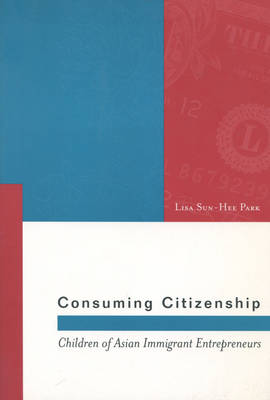
- Retrait gratuit dans votre magasin Club
- 7.000.000 titres dans notre catalogue
- Payer en toute sécurité
- Toujours un magasin près de chez vous
- Retrait gratuit dans votre magasin Club
- 7.000.0000 titres dans notre catalogue
- Payer en toute sécurité
- Toujours un magasin près de chez vous
Description
Consuming Citizenship investigates how Korean American and Chinese American children of entrepreneurial immigrants demonstrate their social citizenship as Americans through conspicuous consumption.
The American immigrant entrepreneur has played a central role in projecting the American ideology of meritocracy and equality. The children of these immigrants are seen as evidence of an open society. While it appears that these children have readily adapted to American culture, questions remain as to why second-generation Asian Americans feel compelled to convince others of their legitimacy and the way they go about asserting their citizenship status.
Extending our understanding of such children beyond the traditional emphasis on assimilation, the author argues that their consumptive behavior is a significant expression of their paradoxical position as citizens who straddle the boundaries of social inclusion and exclusion.
Spécifications
Parties prenantes
- Auteur(s) :
- Editeur:
Contenu
- Nombre de pages :
- 184
- Langue:
- Anglais
- Collection :
Caractéristiques
- EAN:
- 9780804752473
- Date de parution :
- 22-08-05
- Format:
- Livre relié
- Format numérique:
- Genaaid
- Dimensions :
- 156 mm x 236 mm
- Poids :
- 367 g

Les avis
Nous publions uniquement les avis qui respectent les conditions requises. Consultez nos conditions pour les avis.






